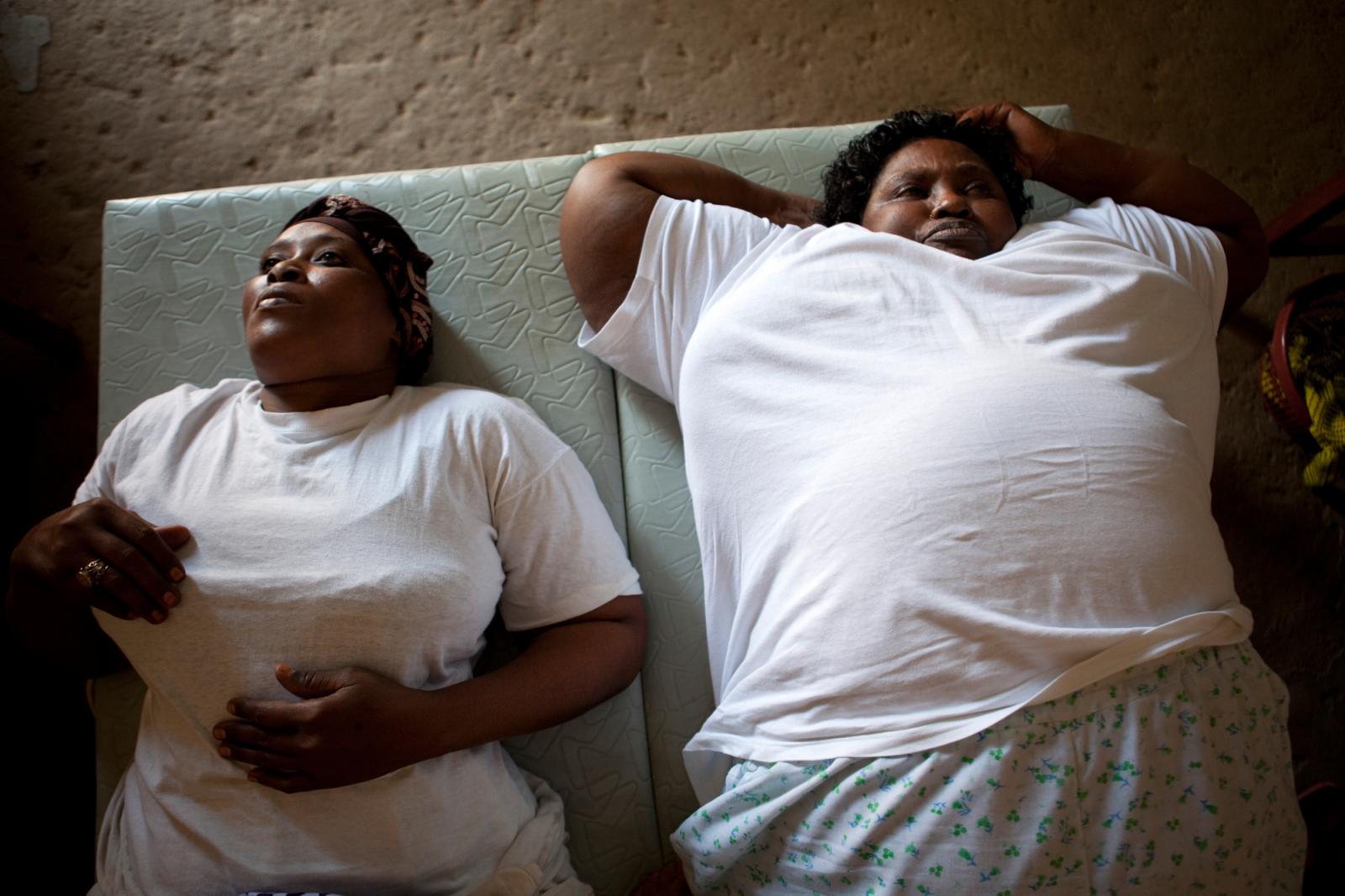•
GLOBESITY
Obesity has reached epidemic proportions globally. The number of overweight and obese people worldwide is now greater than those suffering from malnutrition, according to the International Red Cross. The problem, first documented in rich countries, is dramatically increasing in the developing world, particularly in urban settings, from Kenya to Mexico. And it’s happening quickly. Fifty years ago, we did not have obesity indicators. Since 1980, the number of overweight and obese has more than doubled.
These photographs explore the consequences of the obesity crisis globally, how the West exported it to the developing world, and most interestingly how cultures are coping and struggling with it.
In 2011, I started to photograph Donna Simpson, a 602-pounds American who holds the Guinness World Record as the heaviest woman to give birth. In 2008, she began a quest to reach a thousand pounds. Internet fans supported her, paying to watch her eat, and news media flocked to her story. But she also received hate mail, showing Americans’ contradictory attraction and revulsion towards food and obesity.
Her story drove me to investigate obesity and its impact more deeply. I began observing obesity’s growing impact in places like Egypt, Kenya and Mexico. The consequences of obesity and related diseases are especially dire for the developing world whose health systems are already reeling from the toll of infectious diseases like Malaria and HIV. The so-called “nutrition transition,” where cheap, processed, sugary and fatty foods replace traditional diet, is wrecking silent havoc on the world’s poor. Now they face diabetes and heart disease, illnesses that take massive resources to treat, resources their governments do not have.
Obesity hurts not only individuals, but is also a symptom of an unsustainable global economy and social norms. The processed, energy-dense and unhealthy foods exported by the West replace traditional diets and reshape agriculture to produce the industrial ingredients needed, leaving a deep ecological footprint. In the slums of Nairobi fried food has taken over the streets, in Mexico soda is called “agua,” or water.
This reportage aim to shed light on the truly global nature of an epidemic still thought of by many as a “rich world" problem.



















